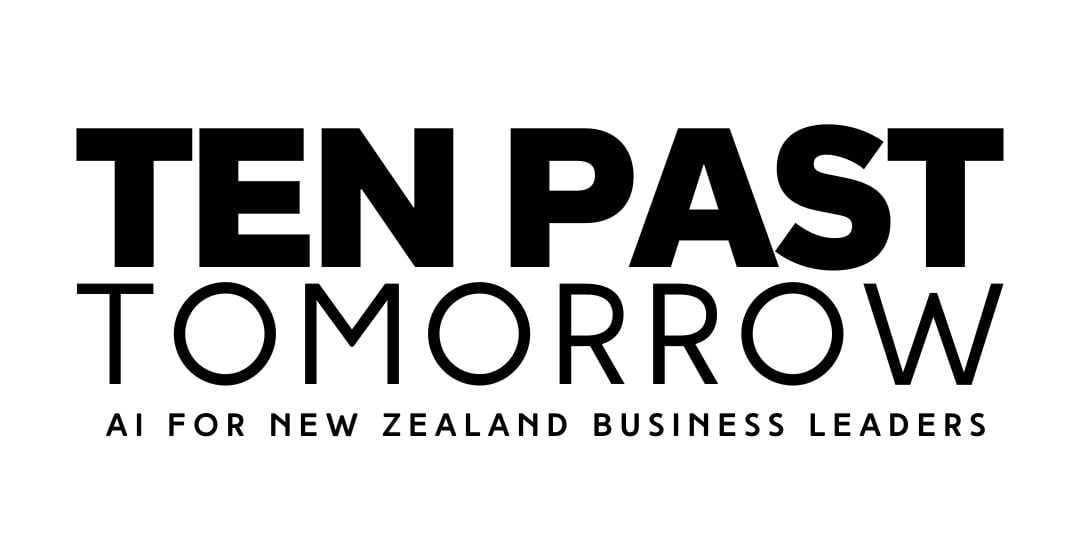My Top 3 thoughts on AI so far in 2024
I didn’t think it was possible for AI to move faster than it did during the chaos of 2023, the breakthrough year of generative AI into mainstream awareness, due mainly to the release of ChatGPT in late 2022.
But…
The first quarter of 2024 has been an absolute whirlwind of advancements in the world of generative AI.
The pace of advancement has only increased since 2023, and shows no signs of reversing that trend.
I've had the daily privilege (I really mean that word) of witnessing firsthand the rapid evolution of this transformative technology, with my clients and public talks.
In this article, I'll share my Top 3 insights on the key developments in Q1 2024 and what they mean for New Zealand businesses and their leaders looking to harness the power of AI.
Insight #1: The emerging AI oligopoly
The year began with the emergence of worthy competitors to OpenAI's ChatGPT (finally!), which had dominated the generative AI landscape in 2023, as the market’s clear and unchallenged leader.
Anthropic's Claude 3 and Google's Gemini Advanced have demonstrated capabilities on par with GPT-4, offering unique strengths and flavors that cater to different use cases.
I find myself switching between these models depending on the task at hand, leveraging their individual strengths to deliver the best results for my clients.
Recent benchmarks have shown that Claude 3 outperforms GPT-4 on tasks related to coding and mathematical reasoning, while Gemini Advanced excels in creative writing and language translation.
While I acknowledge these are only very generalised summaries of mine, they point towards the importance of selecting the right AI model for specific use cases to maximize efficiency and effectiveness.
I keep saying, and will repeat it here again, that it’s essential for business leaders to stay informed about the latest developments in the AI landscape.
Keeping abreast of new models and their capabilities will help you make informed decisions about which AI tools to adopt for specific use cases within your business.
For those interested, here’s a great comparative analysis of Claude 3, GPT-4, and Gemini as a great starting point for understanding the nuances of each model and how they can be applied in various business contexts.
 "Hmmm, the AI agent revolution arrives on the 26th of Σ3 this year. Thanks futuristic AI calendar."
"Hmmm, the AI agent revolution arrives on the 26th of Σ3 this year. Thanks futuristic AI calendar."
Insight #2: AI adoption is gathering pace
A recent survey of 25,000 workers across 17 countries revealed that half of all workers were already using generative AI tools in their work, (with or without their employers' consent!).
These findings align with my own experiences working with businesses across various industries.
In 2024, I'm pleasantly surprised to hear how many CEOs and Board members that I talk with, who are now at least starting to experiment and test generative AI within their workplaces.
It’s a step forward from 2023, when the feeling I had was that senior leaders were saying “wow, this is revolutionary” out loud, but still internally thinking “I’ll just wait to see how this pans out for everyone else first”.
Of course, I still think as a community of business leaders in NZ, we need to be striding forward faster and more confidently with AI deployment, but I’m heartened that we’re at least gaining traction in Q1, 2024.
Some motivation… I saw a recent study by McKinsey which found that companies that successfully adopt AI are already seeing on average a 10-15% increase in revenue and a 20-30% reduction in costs. Quickly. And I’d argue those figures are very much on the conservative side, based on what I’m seeing with my own clients.
Insight #3: The agents are coming
Caveat: This topic will be a bit of a step into the unknown for most readers. But I introduce it because it will be a vitally important area of AI to become familiar with for business leaders in the next 6 - 18 months. It’s no exaggeration to say this will fundamentally change what business and whole economies look like.
While the current focus is largely on generative AI tools like ChatGPT and its competitors, the next watershed moment in AI adoption will be driven by agentic AI — that is, AI systems that can autonomously perform a series of tasks and achieve a given goal, without requiring step-by-step human guidance.
Seminal AI researcher Andrew Ng and his team have demonstrated that using AI agents that themselves can use LLMs to iterate over a task multiple times in a sequence of steps, can dramatically improve the performance of LLMs.
For instance, GPT-3.5's performance on coding tasks improved from 48% to over 95% when using AI agents techniques, rivaling the performance of GPT-4.
Although I don’t think agentic AI technology isn't mature enough yet to be practically useful in most businesses, I expect it to be within the next 12-18 months.
As such, it’s my recommendation that forward-thinking business leaders should start mapping out workflows that could be automated using agentic AI now, focusing on repetitive, templatable processes with defined objectives that are currently being done manually by humans.
Some easy examples of processes that could be prime candidates for agentic AI automation include data entry, invoice processing, and basic customer service inquiries.
By identifying these opportunities early (even before the tech has actually fully matured to be useful), businesses will position themselves to be among the first to reap the benefits of this emerging technology.
Early mover advantage is impossible to overstate in the AI world.
Conclusion
The first quarter of 2024 has set the stage for an exciting year in the world of generative AI. Personally, I’m brimming with excitement for the pace of development, and what it represents in the way of opportunities for businesses to supercharge their operations and performance.
My summary; with the emergence of powerful new models, increasing adoption in the workplace, and the potential of agentic AI on the horizon, businesses that stay informed and adapt quickly will be well-positioned to thrive in the age of AI.
A word, as always, on the ethics of adopting AI; as we navigate this rapidly evolving technology, let’s collectively remember to approach AI adoption responsibly, with a focus on continuous learning, employee education, and morally sound implementation. I can’t repeat enough how important that is to me as a core message of AI in business.
The AI revolution is only gathering pace in Q1, 2024, and it's transforming the way we work and do business.






